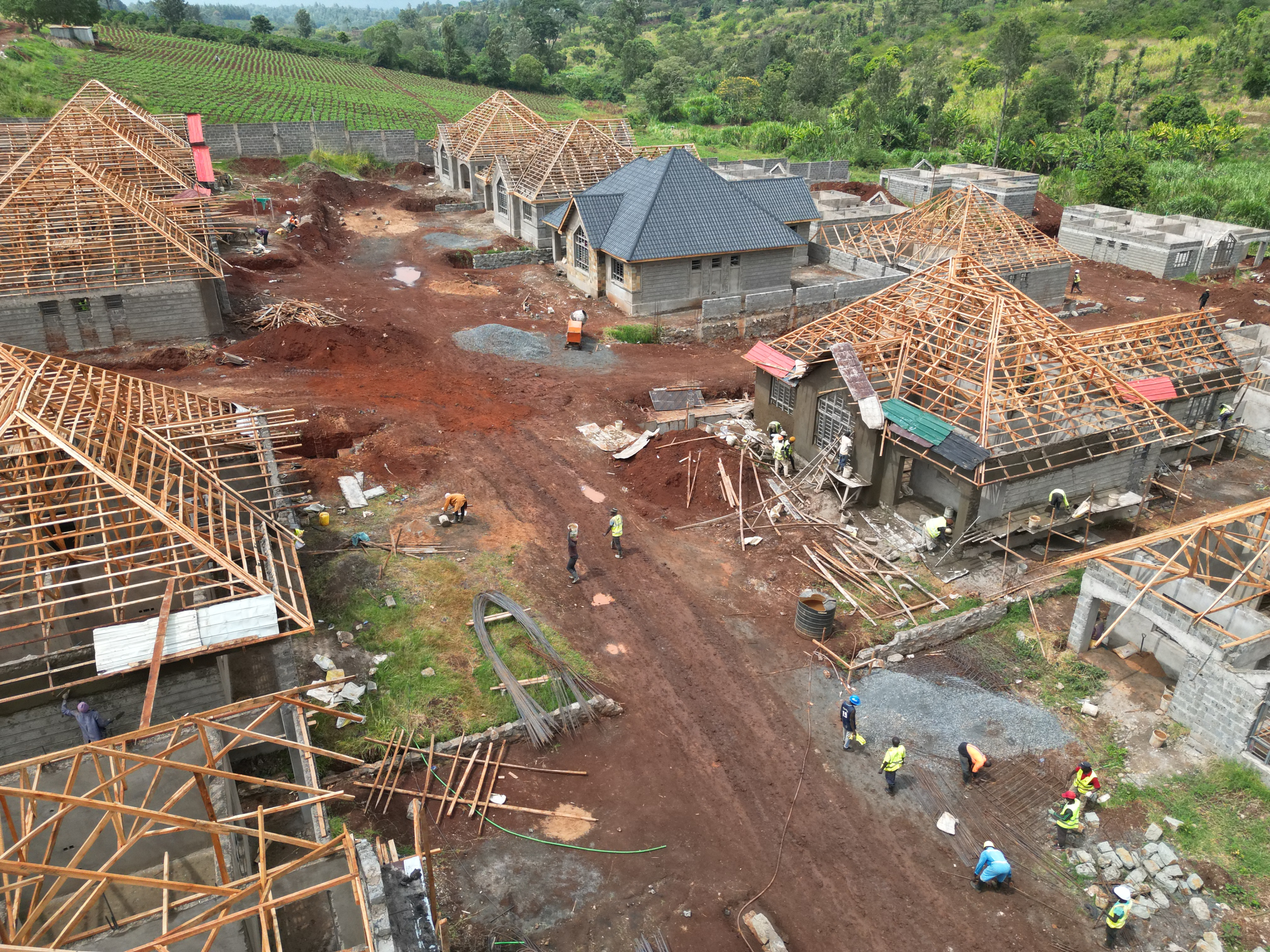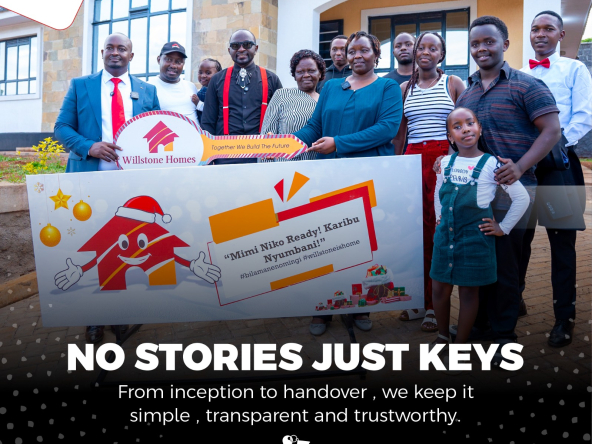In the quiet backroads of Juja and Ruiru, away from the chaos of Nairobi’s inner city, a silent revolution is underway. While most eyes remain fixed on flashy malls and highways, tech giants like Microsoft Azure and Safaricom have been busy planting seeds of change — their massive data center projects. As a result, data centers impact on land prices Juja Ruiru is becoming one of the most quietly explosive real estate stories in Kenya today.
Just like roads and malls traditionally dictated urban expansion, today it’s fiber optics, cloud servers, and secure digital vaults that are shaping where wealth flows — and Juja and Ruiru are prime examples.
How Data Centers Are Reshaping Satellite Towns
At the heart of the matter is Kenya’s digital transformation. With more businesses moving to the cloud and government services going digital, the demand for reliable, secure local data centers has skyrocketed.
Major tech companies have responded:
- Microsoft Azure launched its first African cloud regions in Nairobi and Cape Town, with Nairobi’s server hubs anchored near Juja and its environs.
- Safaricom, Kenya’s largest telecoms player, has heavily invested in its own Tier III data center facilities in Thika and Ruiru.
These aren’t just tech installations; they’re digital fortresses requiring stable electricity, abundant water for cooling, massive security, and — crucially — vast tracts of relatively affordable but accessible land.
Satellite towns tech investment is no longer about cheap housing alone — it’s about future-proofing Kenya’s economy.
The Numbers Behind the Boom
Since the opening of key data centers in 2020–2023, property values in Ruiru and Juja have quietly surged.
According to recent reports from HassConsult and Knight Frank:
- Land prices in parts of Juja rose by up to 18% between 2021 and 2024.
- Ruiru’s land values spiked by nearly 22% during the same period, especially near the Thika Superhighway corridor.
Interestingly, this surge has often outpaced traditional residential drivers like shopping malls or road expansion.
One reason is that data centers create what economists call “anchor demand.” Once a major tech facility moves in, other businesses — think backup offices, tech parks, cloud service providers, and high-end residential estates — inevitably follow.
Read Also: “Vitz-Friendly” Estates: Designing Gated Communities for the Rise of Small Car Owners
Why Data Centers Drive Up Land Prices
Understanding the data centers real estate Kenya phenomenon requires unpacking a few critical elements:
1. Infrastructure Development
Data centers need top-notch fiber optic links, reliable electricity (often dual feed), and excellent road access for equipment transport. To facilitate their operations, governments and private companies pour resources into infrastructure upgrades — which then benefit surrounding landowners.
2. Skilled Workforce Migration
Cloud hubs attract engineers, IT experts, and support staff. That workforce needs good housing, leisure options, and schools — sparking higher-end residential development in previously overlooked areas.
3. High-Security Needs
Data centers bring heightened security requirements — making neighborhoods around them naturally safer and more attractive for family living and high-value property development.
Thus, while the data centers themselves occupy relatively small footprints, the surrounding ripple effect massively multiplies land demand.
Azure and Safaricom: The New “Invisible Anchors”
Unlike a mall or a highway, data centers are low-profile by design — plain buildings with heavy fencing, minimal signage, and restricted access. Yet their economic impact is anything but low-key.
- Azure data center Nairobi operations have spurred a mini-housing boom in parts of Juja along Kenyatta Road and the Great Eastern Bypass.
- Safaricom data center effect can be seen in the rise of gated communities like Tatu City (which offers proximity to high-tech infrastructure) and mid-level developments in Ruiru East.
Developers targeting these areas are no longer selling “views” or “quiet suburbs” alone. They are marketing connectivity, reliability, and future-proof investments.
The New Goldmine: Digital Infrastructure Property Market
The world over, savvy investors are recognizing a new class of real estate: digital infrastructure property market assets. In Kenya, Juja and Ruiru are becoming prototypes for this trend.
Some key signs:
- Industrial parks designed to house server farms and cloud companies.
- Residential communities specifically advertising “fiber-ready” homes with backup power solutions.
- Commercial spaces tailored for tech SMEs offering cloud services, server management, and cybersecurity.
The land near data centers is increasingly priced not by what’s physically there today — but by what’s being quietly wired beneath the ground and inside windowless buildings.
Read Also: Why Churches and Mosques Are Emerging as Real Estate Power Brokers in Satellite Towns
What This Means for Buyers and Investors
For anyone eyeing the Juja Ruiru property trends, several insights emerge:
- Early Movers Win: Those who bought land near Azure or Safaricom installations before 2020 are already seeing major paper gains.
- Utility Connections Matter: Land parcels closer to fiber lines and substations will outperform others.
- Commercial Demand Will Rise: Beyond homes, there will be growing need for server maintenance companies, cybersecurity offices, and managed service providers nearby.
Smart investors should think beyond residential plots and consider mixed-use development models that incorporate tech-focused commercial spaces.
Challenges: It’s Not All Smooth Sailing
Despite the boom, risks exist:
- Speculative pricing is inflating land costs in some parts without corresponding infrastructure delivery.
- Power supply inconsistencies still plague even major hubs.
- Environmental impact concerns (particularly water use for cooling) could trigger future regulations that affect land usability.
Investors must be strategic — partnering with surveyors, tech consultants, and municipal planners to truly understand which plots will gain versus stagnate.
The Quiet Digital Revolution of Juja and Ruiru
The data centers impact on land prices Juja Ruiru is a clear reminder: real estate fortunes are increasingly tied to technology, not just tarmac.
Where cloud servers rise, land values follow — often quietly but powerfully.
For developers, buyers, and investors willing to look beyond the obvious and think digitally, Juja and Ruiru offer a rare opportunity: to invest in the unseen infrastructure driving Kenya’s next economic leap.
In Kenya’s 21st-century land rush, the new gold is not oil, coffee, or even houses — it’s data.
Read Also: The Borehole War: Water Security as a New Frontier in Real Estate Marketing in Satellite Towns





